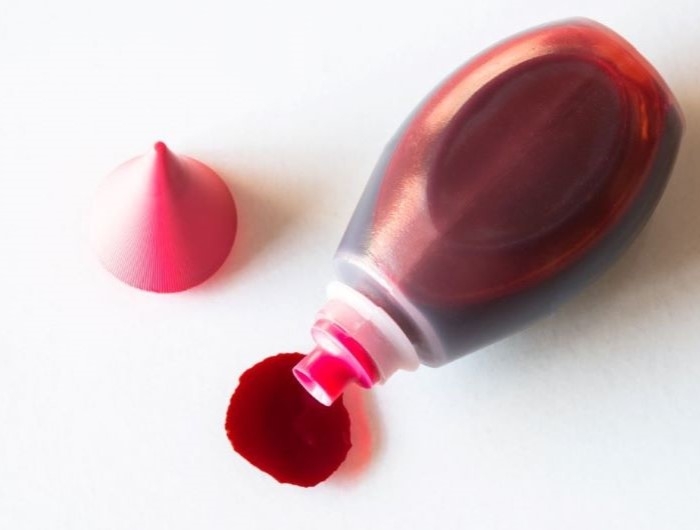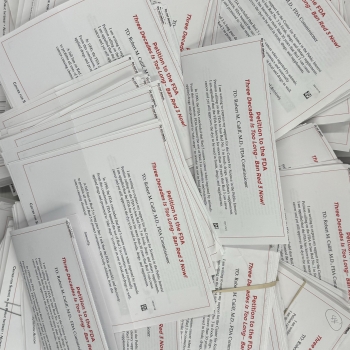Red 3: Why hasn’t the FDA banned this carcinogenic food dye?

Michelle Lee Photography - istockphoto.com.
A year ago, FDA filed CSPI’s petition asking the agency to ban carcinogenic Red 3, a synthetic dye found to cause cancer in animals in lab tests. FDA prohibited its use in drugs and cosmetics, but still allows it in food. Here’s what you should know about the additive, where our petition stands, and how FDA is falling behind states in protecting consumers.
Red 3 and cancer
In 1990, the Food and Drug Administration delisted Red 3 for use in cosmetics, like lipstick and skincare products, as well as topical drugs, like pain-relief ointments. That’s because the FDA learned Red 3 is a carcinogen in the 1980s, and federal law requires that FDA prohibit the use of any cancer-causing color additives. At the time, the agency promised to remove Red 3 from the food supply, as well, but met with pressure from the maraschino cherry industry, which uses the color additive to keep their canned cherries red. For 33 years, the FDA has failed to keep its promise and uphold its duty to remove this known carcinogen from American foods, where it can still be found in thousands of candies, snacks, and fruit products.
When laboratory testing reveals that an additive causes cancer in humans or animals, it is no longer safe, and the Delaney Clause—an amendment to the Federal Food, Drug, and Cosmetic Act—prohibits the FDA from approving that ingredient for use in food, drugs, and cosmetics.
Red 3 has been banned for food use in the European Union, except in some cherry products, since 1994. It’s also banned in Japan, China, the United Kingdom, Australia, and New Zealand.
It was under the Delaney Clause that Red 3 was banned from topical products in the US, and it should be under the Delaney Clause that Red 3 is banned from food products, as well.
CSPI’s petition to FDA

With inaction on Red 3’s use in foods since 1990, over a year ago CSPI, along with 23 other organizations and scientists, petitioned the FDA to finally eliminate the carcinogenic dye from the food supply.
And on this date exactly 12 months ago, FDA filed our petition, meaning the agency agreed to formally evaluate it.
The agency is required to respond within 180 days of filing a color additive petition such as ours. As the one-year mark on our petition approached and California’s Food Safety Act (AB 418) became law, CSPI saw renewed interest in a nationwide ban on Red 3. The FDA, however, has yet to propose amending regulations to delist Red 3 or substantively respond to our petition.
In the meantime, California has proposed, passed, and signed into law its own state-level ban on Red 3, and New York is currently considering similar legislation—leaving the federal agency far behind in its efforts to protect American consumers from a cancer-causing food dye.
CSPI continues to fight for safer foods
Today, CSPI has sent a new letter to the FDA requesting immediate action to issue a notice in the Federal Register to delist Red 3 for all remaining uses. The evidence has shown for more than 30 years that Red 3 is harmful, and the agency’s own decision to remove it from topical drugs and cosmetics confirms the validity of those test results. Its failure to act to protect the American food supply violates the Delaney Clause, as well as consumer trust.
What you can do
Tell the FDA to follow California’s lead and ban Red 3 nationwide, once and for all. Read product labels carefully, and look for foods you purchase in the Environmental Working Group’s FoodScores database to find out if they contain Red 3. CSPI recommends avoiding all synthetic food dyes, especially for children, as these ingredients can cause behavioral issues including hyperactivity. Find more information on synthetic food dyes and other food additives in our Chemical Cuisine database.

Stirring the Pot
Join the fight for safer, healthier food
Sign up to receive action alerts and opportunities to support our work in Stirring the Pot, our monthly newsletter roundup.

